-
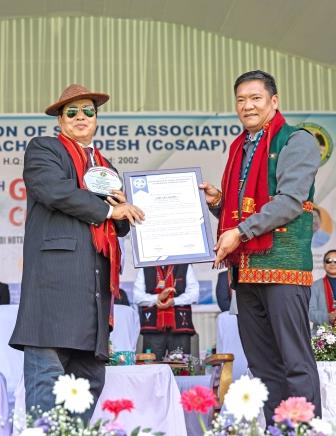 NPS concerns genuine, needs careful consideration: CM Khandu
NPS concerns genuine, needs careful consideration: CM Khandu
-
Women-run kitchens showcase local cuisine
-
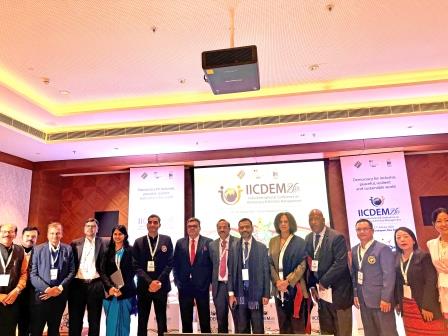 Team Arunachal Pradesh participates in IICDEM 2026; leads thematic…
Team Arunachal Pradesh participates in IICDEM 2026; leads thematic…
-
24hr bandh hits normal life in Lower Subansiri
-
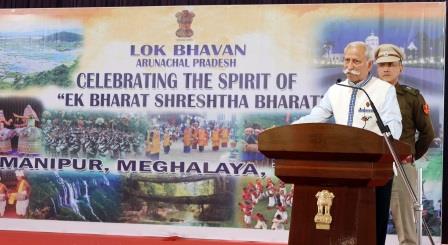 Lok Bhavan celebrates State Foundation Day
Lok Bhavan celebrates State Foundation Day
-
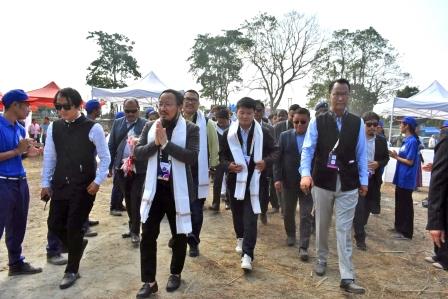 Arunachal Yuva Samanvay 2026 underway in Namsai
Arunachal Yuva Samanvay 2026 underway in Namsai
-
DA conducts Keyi Panyor Suvidha outreach campaign
-
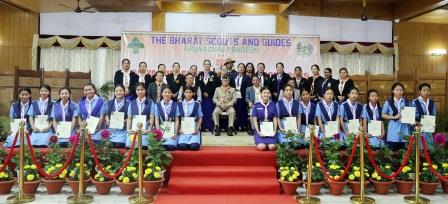 Governor confers BSG Rajya Puraskar
Governor confers BSG Rajya Puraskar
-
Pongte stresses use of technology in law-making
-
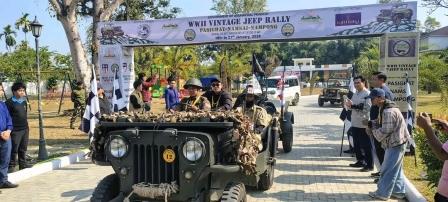 Vintage Jeep & Bike Rally commemorates end of World War-II
Vintage Jeep & Bike Rally commemorates end of World War-II
Yupia, Apr 16: The Department of Women and Child Development convened a meeting to devise a comprehensive roadmap aimed at preventing and tackling the issue of child marriage in Papum Pare District at Yupia on Wednesday.
Chaired by Tame Higio, Additional Deputy Commissioner (ADC) of Sagalee, the meeting underscored the importance of collaborative efforts to eradicate this social evil. The ADC emphasized the need to amplify awareness programs about the Prohibition of Child Marriage Act, 2006, to educate communities about its implications and consequences. Underscoring the importance of counselling, she suggested for regular counselling with stakeholders, including parents, teachers, and community leaders, to ensure a collective approach towards preventing child marriages.
She further suggested for monitoring student absenteeism in the schools to identify suspicious cases, to be reported to the Child Welfare Committee (CWC) for further action. Yame also encouraged religious leaders attending the crucial meeting to play a vital role in raising awareness about the issue of child marriage, leveraging their influence to promote positive change and protect the rights of children SDPO Radhe Obing emphasized the need for close coordination among stakeholders to prevent child marriages, highlighting the importance of proactive reporting of identified cases. He also pointed out that society plays a role in perpetuating child marriages and needs to evolve and become more progressive.
CDPO Tana Chamaro, highlighted that while Papum Pare may not have reported cases of forced child marriages, adolescent marriages are increasingly prevalent. She emphasized the need for interventions like counselling and suggested involving Self-Help Groups (SHGs) in this effort. Additionally, she proposed converging awareness activities with various programs, such as MGNREGA meetings, to amplify the impact.
Adv. Tarh Nagu, Legal cum Probation Officer (DCPU), provided an overview of the Prohibition of Child Marriage Act, 2006.
The discussion also included participation from Panchayati Raj Institution (PRI) members, who suggested intensifying awareness and counselling activities to prevent child marriages.

Kenter Joya Riba
(Managing Editor)She is a graduate in Science with post graduation in Sociology from University of Pune. She has been in the media industry for nearly a decade. Before turning to print business, she has been associated with radio and television.
Email: kenterjoyaz@easternsentinel.in / editoreasternsentinel@gmail.com
Phone: 0360-2212313

